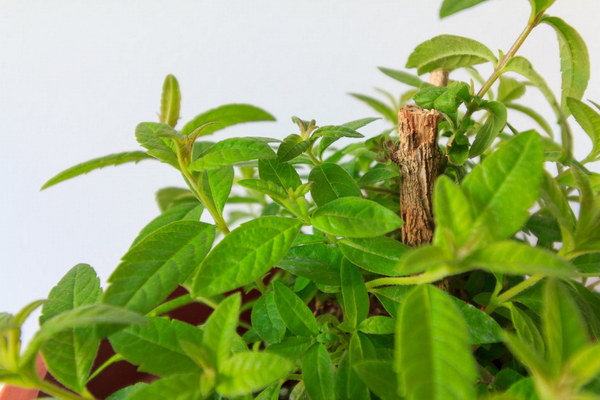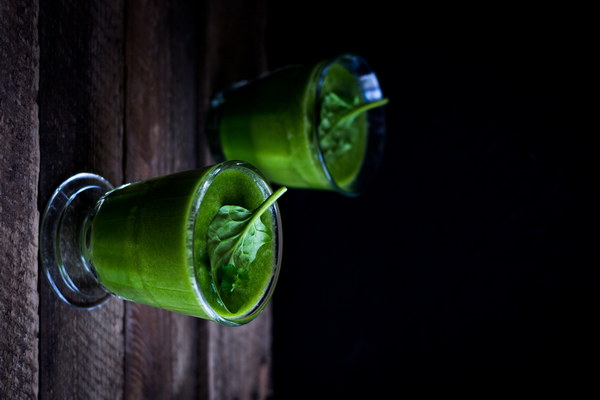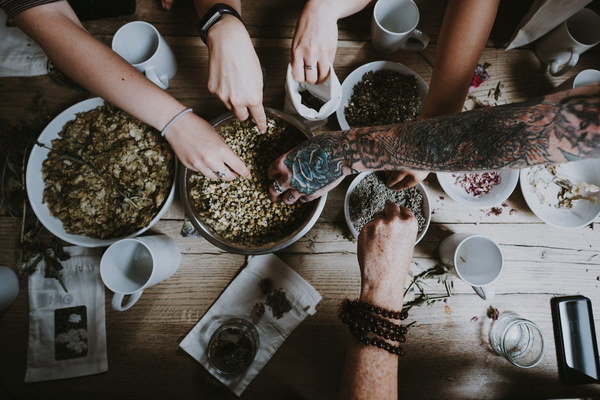The Art of Herbal Remedies and Tonification Nurturing Your Body with Traditional Chinese Medicine
In the realm of traditional Chinese medicine (TCM), the concept of balancing the body's internal harmony is paramount. One of the key methods employed in TCM is the use of herbal remedies and tonification to promote health and vitality. This article delves into the world of TCM, exploring the importance of herbal remedies and tonification in nurturing the body.

Herbal remedies in TCM are derived from a wide array of plants, minerals, and animals. These remedies are carefully selected based on their properties, such as their temperature, taste, and therapeutic effects. The goal is to harmonize the body's yin and yang, which are the two fundamental forces that govern the body's functions.
One of the most well-known examples of herbal remedies is the use of ginseng. This potent herb is revered for its ability to boost energy, enhance cognitive function, and improve overall well-being. Ginseng is believed to tonify the body's Qi (vital energy), which is essential for maintaining health and longevity.
Tonification is another crucial aspect of TCM. It involves the use of herbs to strengthen the body's internal organs and systems, thereby enhancing their functions. This process is particularly beneficial for individuals who are experiencing weakness or deficiency in certain areas of their body.
There are various types of tonification, including:
1. Kidney tonification: This is vital for individuals who are experiencing fatigue, weak bones, and reproductive issues. Herbs such as goji berries, codonopsis, and moringa are commonly used to tonify the kidneys.
2. Lung tonification: The lungs are responsible for oxygenation and immune function. Herbs like codonopsis, astragalus, and schisandra are used to strengthen the lungs and boost the immune system.
3. Spleen and stomach tonification: This is essential for individuals who suffer from digestive issues, such as bloating, diarrhea, or fatigue. Herbs like atractylodes, codonopsis, and white peony are used to tonify the spleen and stomach.
4. Heart and mind tonification: The heart and mind are closely linked in TCM. Herbs such as saffron, linden, and valerian root are used to calm the mind, reduce stress, and improve mental clarity.
The process of using herbal remedies and tonification in TCM is both an art and a science. It requires a skilled practitioner who can identify the root cause of an individual's health issues and select the appropriate herbs to address them.
One of the advantages of TCM is that it promotes a holistic approach to health. Instead of treating symptoms, TCM aims to address the underlying causes of illness. This is particularly beneficial for chronic conditions, where the use of herbal remedies and tonification can help to restore balance and improve overall well-being.
Moreover, herbal remedies and tonification are generally considered safe and have fewer side effects compared to conventional medications. However, it is important to consult with a qualified TCM practitioner before starting any treatment, as certain herbs may interact with other medications or be contraindicated for specific health conditions.
In conclusion, the use of herbal remedies and tonification in TCM is a powerful tool for nurturing the body and promoting health. By addressing the root causes of illness and balancing the body's internal harmony, TCM can help individuals achieve optimal well-being and vitality. As more people become aware of the benefits of TCM, it is likely that the use of herbal remedies and tonification will continue to grow in popularity.









